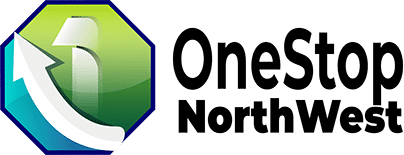
Introduction
Having a robust online presence is more crucial than ever for small business owners. It’s the beacon that guides potential customers to your door in the vast ocean of the internet. This necessitates a blend of skills and strategies in Digital Marketing and SEO (Search Engine Optimization). Although these terms may sound daunting, the essence of boosting your online presence boils down to making your business easily findable and appealing to your target audience.
Digital Marketing encompasses the broad tactics used to reach your audience online, be it through social media, email campaigns, or digital advertisements. SEO, on the other hand, is about tuning your website’s content and structure to rank higher in search engine results—think of it as making your business’s signboard more visible and attractive in the digital highway.
For small business owners needing expert guidance, this article brings together insights from 5 SEO specialists. They share straightforward, actionable tips for beginners looking to navigate the complexities of SEO and digital marketing without getting lost in the jargon.
To dive right into what you’re looking for:
- Digital Marketing: Engaging with your audience via digital channels.
- SEO: Optimizing your online content so search engines like Google show it as a top result.
- Online Presence: The overall visibility of a brand or business in the online space.
By the end of this read, you will be equipped with the foundational knowledge to embark on enhancing your digital footprint effectively.

Understanding SEO and Digital Marketing
In online business, understanding the basics of SEO and how it integrates with broader digital marketing strategies is crucial. Let’s break it down into simpler terms and explore some essential tools that can help you along the way.
SEO Basics
At its core, SEO (Search Engine Optimization) is about making your website more visible on search engines like Google. It’s about understanding what people are searching for online and ensuring your site shows up in those search results. The goal is to attract more traffic to your site in a natural, or “organic,” way.
Digital Marketing Integration
Digital marketing is a broad term that covers all of your online marketing efforts. While SEO focuses on improving organic search rankings, digital marketing includes paid advertising, social media, email marketing, and more. Integrating SEO with your overall digital marketing strategy ensures that all aspects of your online presence work together harmoniously.
Google Analytics

Google Analytics is a free tool that shows you how visitors interact with your site. It can tell you where your visitors come from, which pages they visit, and how long they stay. Understanding these metrics is essential for improving your SEO and tailoring your digital marketing efforts to meet your audience’s needs.
SEMrush
SEMrush is a powerful tool for SEO and digital marketing professionals. It provides insights into your competitors’ strategies, helps you perform keyword research, and tracks your website’s ranking for those keywords. It’s an invaluable resource for understanding your position in the market and identifying opportunities for improvement.
Ahrefs
Ahrefs is another essential tool for a digital marketing and SEO specialist. It’s particularly well-known for its backlink analysis capabilities. Backlinks, or links from other websites to yours, are a critical factor in SEO. Ahrefs helps you understand who is linking to you, how your link profile compares to your competitors, and identifies opportunities to acquire new, high-quality backlinks.
SEO and digital marketing are two sides of the same coin. SEO is a critical component of your digital marketing strategy, helping to drive organic traffic to your site. Tools like Google Analytics, SEMrush, and Ahrefs provide the data and insights you need to refine your strategy and achieve your online business goals. The digital landscape is always changing, so continuous learning and adaptation are key to staying ahead.
Key SEO Strategies for Beginners
Stepping into SEO can feel like navigating a dense jungle. But don’t worry, we’ve got the machete to help you carve a clear path. Here’s a simple guide on key SEO strategies for beginners, straight from the digital marketing and SEO specialists.
Keyword Research
- Start with the Basics: Think like your audience. What words would they type into Google to find your content? Tools like Google’s Keyword Planner can give you insights into the search volume and competition for these terms.
- Look for Long-Tail Keywords: These are longer and more specific keyword phrases. They might have lower search volumes, but they also have lower competition and higher conversion rates.
On-Page Optimization
- Title Tags and Meta Descriptions: These are the first things a potential visitor sees in search results. Make them catchy, include your main keyword, but keep them relevant.
- Headings and Subheadings: Use H1, H2, H3 tags to structure your content. Not only does this make your content easier to read, but it also helps Google understand the main topics of your page.
- Optimize Images: Use descriptive file names and alt tags for all your images. This improves accessibility and helps search engines understand what the image is about.
Off-Page Optimization
- Build Quality Backlinks: Links from reputable sites to your site tell search engines that your content is valuable. Guest blogging, creating shareable content, and engaging on social media can help build these links.
- Social Signals: While not a direct ranking factor, social shares increase visibility, which can lead to more backlinks.
Technical SEO
- Mobile-Friendliness: With more searches happening on mobile devices, your site must perform well on all screen sizes.
- Site Speed: A slow-loading site can hurt your rankings and user experience. Use tools like Google’s PageSpeed Insights to find and fix speed issues.
- Secure Your Site: Ensure your site uses HTTPS. It’s a signal to users and search engines that your site is secure.
Content Development
- Create Valuable Content: Content is king. Focus on creating content that answers your audience’s questions, solves their problems, and is enjoyable to read.
- Update Regularly: Fresh content keeps users coming back and shows search engines that your site is active.
SEO isn’t a one-time task. It’s an ongoing process of improving your site and adapting to new search engine algorithms. But by starting with these fundamental strategies, you’ll be well on your way to becoming a savvy digital marketing and SEO specialist.
Keep in mind that avoiding common SEO mistakes is just as important as implementing the right strategies. Let’s dive into some of the pitfalls to avoid in the next section.
Tools and Resources for Effective SEO
In the journey to becoming a proficient digital marketing and SEO specialist, knowing the right tools and resources is like having a treasure map. It guides you to the hidden gems of SEO success. Let’s explore some essential tools and resources that can significantly boost your SEO efforts.
Google Analytics
Google Analytics is your go-to tool for understanding your website traffic. It shows where your visitors come from, how long they stay, and what content they engage with. Think of it as your website’s report card, giving you insights into what’s working and what’s not. Learn more about Google Analytics.
SEMrush
SEMrush is a powerful tool for keyword research, competitor analysis, and SEO audit. Imagine having a spyglass that lets you see what your competitors are up to and which keywords are bringing them traffic. That’s SEMrush for you. It’s invaluable for planning your SEO strategy and staying ahead of the competition. Explore SEMrush.
Ahrefs
Ahrefs excels in backlink analysis. It’s like having a magnifying glass to examine the quality and quantity of backlinks pointing to your site and your competitors’. Building a strong backlink profile is crucial for SEO, and Ahrefs helps you identify opportunities to get quality backlinks. Dive into Ahrefs.
Google AdWords
Google AdWords is not just for PPC campaigns. It’s also a treasure trove for keyword research. By understanding which keywords are popular and their competition level, you can better strategize your SEO efforts. Use it to uncover keywords that can drive traffic to your site. Check out Google AdWords.
SEO Fundamentals Course
An SEO Fundamentals Course is your compass in the SEO world. It guides you through the basics and complexities of SEO. Websites like Coursera, Udemy, and SEMrush Academy offer courses that range from beginner to advanced levels. Investing time in an SEO course lays a solid foundation for your digital marketing and SEO career. Start learning with SEMrush Academy.
Programming Languages: Python, CSS, Javascript, HTML
Understanding basic programming languages such as Python, CSS, Javascript, and HTML is like having a Swiss Army knife in SEO. You don’t need to be a coding expert, but knowing the basics helps you make website adjustments that can significantly impact your SEO. For example, you can improve site speed, make your site mobile-friendly, and ensure it’s easily crawlable by search engines.
- Python can automate repetitive SEO tasks, saving you time.
- CSS and HTML help you optimize your site’s layout and structure.
- Javascript is essential for making your site interactive and engaging.
Wrapping Up
Equipping yourself with these tools and resources is a big step toward mastering SEO. The digital marketing and SEO landscape is always evolving. Staying curious, continuously learning, and experimenting with these tools will keep you ahead in the game.
As we’ve explored the treasure trove of tools and resources available for effective SEO, it’s time to pivot towards understanding the common pitfalls in the next section. Keeping these tools in your arsenal and steering clear of mistakes will pave the way for your success as a digital marketing and SEO specialist.
Common SEO Mistakes to Avoid
In the journey of mastering SEO, it’s just as crucial to know what not to do as it is to know the best practices. Let’s dive into some common mistakes that can trip up even the most enthusiastic beginners.
Ignoring Mobile-Friendliness
Your website’s mobile version is often the first interaction someone has with your business. Google has moved to mobile-first indexing, which means it looks at your mobile site before your desktop site to decide where you rank. If your site isn’t easy to use on a phone, you’re not just frustrating potential customers, you’re also telling Google your site doesn’t deserve the top spot. Make sure your site is responsive and loads quickly on mobile devices.
Overlooking Meta Descriptions
Think of meta descriptions as the window display for your webpage. They might not directly impact your SEO ranking, but they’re crucial for getting people to click through from the search results. A compelling meta description acts like an ad for your page. Without it, you’re missing a chance to stand out in the SERPs (Search Engine Results Pages).
Keyword Stuffing
It’s tempting to cram your keyword into every sentence to try to rank higher. But Google is smart. It can tell when you’re just stuffing keywords in without caring about the quality of your content. This can actually hurt your ranking. Instead, focus on creating useful, information-rich content that uses keywords appropriately and in context.
Neglecting Quality Content
“Content is King” is a cliché because it’s true. Google wants to direct users to content that answers their questions and provides value. If your content is thin, outdated, or just a rehash of what’s already out there, you won’t rank well. Invest time in creating content that’s engaging, informative, and helpful. This not only pleases search engines but also your site visitors.
Forgetting About Analytics
If you’re not measuring, you’re not marketing. Google Analytics and other tools give you a wealth of information about how people find and interact with your site. Not using this data is like flying blind. Regularly check your analytics to see what’s working and what’s not. This will help you make informed decisions about where to focus your SEO efforts.
SEO is a marathon, not a sprint. Avoiding these common mistakes and focusing on best practices will set you up for long-term success. As you continue to grow as a digital marketing and SEO specialist, learning from mistakes is part of the journey. Keep refining your strategies, and over time, you’ll see your efforts pay off with higher rankings, more traffic, and ultimately, more business for your site.
Staying Ahead in SEO: Continuous Learning and Adaptation
In the changing world of SEO, staying updated is not just beneficial—it’s essential. As a digital marketing and SEO specialist, your ability to adapt to algorithm updates, follow industry trends, and engage with the community can set you apart from the competition. Let’s dive into how you can stay ahead in the game.
Algorithm Updates
Google and other search engines frequently update their algorithms. These changes can have a big impact on your website’s ranking. To stay ahead:
- Follow Official Channels: Google’s Search Central Blog is a great place to hear about updates directly from the source.
- Use Tools: SEO tools like SEMrush and Ahrefs often provide insights into algorithm changes and how they affect your site.
- Test and Adapt: When an update rolls out, analyze your website’s performance changes. Adjust your strategies based on what you find.
Industry Trends
SEO and digital marketing are fields. What worked yesterday might not work today. To keep up with industry trends:
- Read Authoritative Blogs: Websites like Search Engine Journal and Backlinko offer valuable insights into current SEO practices.
- Attend Webinars: Many industry leaders host free webinars. These can be a goldmine for learning about the latest trends and strategies.
Networking
Building relationships with other SEO professionals can provide you with support and insight. To effectively network:
- Join LinkedIn Groups: There are numerous digital marketing and SEO groups where professionals share their experiences and advice.
- Attend Local Meetups: Websites like Meetup.com can help you find local gatherings of SEO enthusiasts and professionals.
SEO Conferences
Attending SEO conferences can be a game-changer. These events provide:
- Learning Opportunities: Conferences often feature workshops and speeches by leading experts.
- Networking: They’re a great place to meet other professionals and share experiences.
Online Communities
Online forums and communities are great for asking questions, sharing experiences, and staying informed. Consider joining:
- Reddit: Subreddits like r/SEO are active communities with both newbies and experts.
- SEO Chat Forums: These forums offer a space to discuss strategies, tools, and updates.
SEO is a field where change is the only constant. By committing to continuous learning and adaptation, you’re not just keeping up—you’re staying ahead. Engage with the community, keep your knowledge fresh, and always be ready to pivot your strategies in response to the latest trends and updates. This proactive approach is what marks a truly skilled digital marketing and SEO specialist.
Frequently Asked Questions about SEO and Digital Marketing
Navigating SEO and digital marketing can sometimes feel like trying to solve a puzzle with pieces that keep changing shapes. It’s common to have questions, especially when you’re just starting out. Let’s dive into some of the most frequently asked questions to shed light on these topics.
What is the difference between SEO and Digital Marketing?
SEO (Search Engine Optimization) is like preparing your shop so it’s easy to find on a map. It involves making changes to your website so search engines can easily understand what your site is about, helping it show up in search results when people look for related topics.
Digital Marketing, on the other hand, is like using different ways to tell people about your shop and convince them to visit. It includes SEO but also uses other methods like social media, email marketing, and online ads to reach and engage your audience.
In simple terms, SEO is a tool in the digital marketing toolbox, focused on improving your website’s visibility in search engines.
How long does it take to see results from SEO?
Imagine planting a garden. You wouldn’t expect to plant seeds today and eat tomatoes tomorrow, right? SEO is similar. It takes time—usually three to six months—to start seeing significant results. This timeline can vary based on many factors, including the competitiveness of your industry and the current state of your website.
The key is patience and consistency. SEO is a long-term investment in your website’s health and visibility. Over time, it can yield substantial benefits, including increased traffic and better quality leads.
Can I do SEO on my own or should I hire a specialist?
This is a bit like asking if you should fix your own car or take it to a mechanic. It depends on your skills, time, and interest.
DIY SEO is definitely possible, especially for small websites or startups with tight budgets. There’s a wealth of resources and tools available to help you learn and implement basic SEO strategies. However, it requires a commitment to learning and keeping up with changes in search engine algorithms.
Hiring a digital marketing and SEO specialist might be the better route if you have a larger website, operate in a competitive industry, or simply don’t have the time to do it yourself. A specialist can bring advanced knowledge and tools to the table, potentially speeding up the process and achieving better results.
In the end, whether you go DIY or hire a professional depends on your specific situation. If you’re passionate and willing to learn, starting on your own can be a great experience. But if you’re looking for quicker, more professional results, or if SEO just isn’t where you want to spend your time, bringing in a specialist is a wise investment.
To continuous learning and adaptation, you’re not just keeping up—you’re staying ahead. Engage with the community, keep your knowledge fresh, and always be ready to pivot your strategies in response to the latest trends and updates. This proactive approach is what marks a truly skilled digital marketing and SEO specialist.
Conclusion
In the whirlwind world of digital marketing and SEO, staying ahead isn’t just about keeping pace with the latest trends and algorithm updates. It’s about partnering with the right team who understands the importance of adaptation, innovation, and strategic planning. OneStop Northwest embodies this ethos, offering a comprehensive suite of SEO and digital marketing services designed to elevate your online presence and drive meaningful results.
As we’ve explored the journey of becoming a proficient digital marketing and SEO specialist, it’s clear that the path is both challenging and rewarding. From mastering the basics of SEO to navigating the complexities of digital marketing strategies, the journey requires dedication, continuous learning, and a willingness to experiment.

At OneStop Northwest, we pride ourselves on our commitment to excellence, our deep understanding of the digital landscape, and our ability to tailor our services to meet the unique needs of each client. Our team of experts is not just proficient in the technical aspects of SEO and digital marketing; we also bring a creative and analytical mindset to every project, ensuring that your business not only reaches its target audience but also delivers a compelling message that drives results.
Why Choose OneStop Northwest?
- Expertise: Our team is composed of seasoned digital marketing and SEO specialists who are passionate about what they do and are always on the pulse of the latest industry developments.
- Customized Strategies: We understand that no two businesses are the same. That’s why we develop customized strategies that align with your specific goals and challenges.
- Results-Driven: At the end of the day, it’s about delivering measurable results. Whether it’s increasing website traffic, improving search engine rankings, or boosting conversions, we focus on achieving your objectives.
In conclusion, the journey to achieving and maintaining a robust online presence is ongoing and changing. By choosing OneStop Northwest as your digital marketing and SEO partner, you’re taking a crucial step toward securing your place in the digital marketplace. Our team is dedicated to helping your business navigate the complexities of SEO and digital marketing, ensuring that you not only reach your target audience but also make a lasting impact.
Let us be your guide in this dynamic digital world. Together, we can achieve remarkable results and ensure that your business thrives online. Explore our range of services and discover how OneStop Northwest can help your business achieve its online potential.






osnw-admin
July 16, 2024Thank you for the compliment! We actually do our own hosting to ensure optimal speed and performance. You can check out our hosting plans at https://onestopnw.com/our-services-2/web-hosting/. Feel free to reach out if you have any questions!